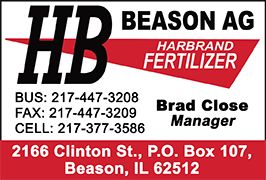No batteries? Thinner packaging? US businesses look for ways to offset
tariffs
[April 02, 2025] By
ANNE D'INNOCENZIO
NEW YORK (AP) — Gadgets sold without batteries. Toys sold in
slimmed-down boxes or no packaging at all. More household goods that
shoppers need to assemble themselves.
These are some of the ways consumer product companies are retooling
their wares to reduce costs and avoid raising prices as President Donald
Trump levies new import taxes on key trading partners as well as some
materials used by American manufacturers.
The economic environment in which the president has imposed, threatened
and occasionally postponed repeated rounds of tariffs is more precarious
than during his first term. U.S. consumers are feeling tapped out after
several years of inflation. Businesses say tariffs add to their expenses
and eat into their profits, but they are wary of losing sales if they
try to pass all of the increase on to customers.
Instead, some companies are exploring cost-cutting options, both ones
that consumers likely would notice in time — remember “shrinkflation?” —
and ones that exist too far down the supply chain for them to see. The
changes may help minimize price increases yet won't be enough in every
case to offset them completely.
These are some of the strategies retailers and brands have in mind:
A kink in the supply chain:
After putting an extra 20% tariff on all goods from China, as well as a
25% tariff on imported steel, aluminum and automobiles, Trump said he
would announce on Wednesday the targets of “reciprocal tariffs” that
mirror the taxes all other nations apply to certain U.S. exports.
He argues the tariffs will spur domestic manufacturing, among other
goals.
Also on the horizon: twice-delayed tariffs on most goods from Canada and
Mexico, and duties on copper, lumber and pharmaceutical drugs.

Kimberly Kirkendall, president of supply-chain consulting firm
International Resource Development, has told clients — U.S. makers of
shelving, home goods and food products — that given all the uncertainty,
this is not the time for long-term moves like seeking factories outside
of China.
She encouraged them to focus on the short term, particularly the need to
scrutinize product lines from every angle for possible savings.
“You’ve got to collaborate and work together with your suppliers in this
situation to be able to bring costs down," Kirkendall said.
Sourcing concerns are not only a worry for big companies that rely on
Chinese manufacturers. Sasha Iglehart, founder of a small online
clothing company called Shirt Story, has a collection of upcycled men’s
shirts that sell for around $235. She said she typically gets her
vintage buttons from an Austrian supplier and knows Trump has talked
about taxing goods from the European Union.
“I will continue to look for local vendors and collectors here in the
States as back up,” said Iglehart, whose company is based in
Connecticut.
Reworking a product
For many companies, evaluating which components or details they can
remove from their products or replace with less expensive ones is the
go-to move for absorbing the potential financial hit from tariffs.
Los Angeles-based toy company Abacus Brands Inc., which designs science
kits and other educational toys, has most of its products made in China.
By using slightly thinner paper in an 80-page project book that comes
with two of its kits, the company expects to avert a $10 retail price
increase, President Steve Rad said.
“Three or 4 cents here,” Rad said. “Seven or 6 cents there. Two more
pennies over there. All of a sudden, you've made up the difference.”
Aurora World Inc., known for its plush pets and toy vehicles, is looking
at using fewer paint colors as a way to counteract tariff costs,
according to Gabe Higa, managing director of the California company's
toy division. All of Aurora World's toys come from factories in China.
“This is something that makes it a little bit simpler so that there’s
less manual labor involved or less material cost,” Higa said. “(It)
doesn't have a lot of incremental value so it's easy to take away.”

[to top of second column] |

Steve Rad, CEO of toy maker Abacus Brands Inc., which designs
science kits and other educational toys for older children, shows a
new improved matte box, left, that will replace its black mold
plastic material packaging insert with an improved cardboard
material to help offset the costs of future tariffs in El Segundo,
Calif., on Monday, March 31, 2025. (AP Photo/Damian Dovarganes)
 The company still may have to raise
prices as long as the new tariffs are in effect, he said.
Economy packaging:
Tweaking or reducing product packaging is another area where
importers may cut back and carries the advantage of possibly
appealing to eco-conscious customers.
Basic Fun CEO Jay Foreman, whose company markets classic toys like
Tonka trucks, Lincoln Logs and Care Bears, said he is presenting
retailers with three different packaging options and asking them to
decide which ones they prefer for the trucks and some other products
that will be in stores next spring.
The first is the current packaging, which consists of a box with a
big open window that lets customers see what's inside. The second
option: no box, just a tray attached to the bottom of toys to hold
them in place on shelves. The third: unwrapped but affixed with a
simple paper price tag that features brand information.
The second-tier packaging would reduce the toy company's cost per
item by $1.25, and the package-free version would yield savings of
$1.75, Foreman said. Both would diminish the appeal of the products
and would not come close to canceling out the tariff on goods made
in China, Foreman said.
He said he would make pricing decisions later this week after Trump
provides details about his planned reciprocal tariffs.
To further reduce its production costs, Abacus Brands is thinking of
switching from plastic to cardboard for the package inserts that
keep toy parts in place. Cardboard trays cost 7 cents per unit
compared to 30 cents for the plastic version, according to Rad.
The change requires finding a new factory to make the inserts, a
move that did not make financial sense before now, he said. The
various tariff-related modifications should be effective for fall
and holiday deliveries to stores, Rad said.
“The compromises we’re making are things that do not matter to the
consumer,” he said.
Forget the extras
Shoppers will likely have to assemble more of their products at home
as companies look to reduce shipping costs, according to Kirkendall
of International Resource Development.

One of her clients manufactures self-watering planters that are made
in China. The product is undergoing a redesign so it can be shipped
as separate nesting components instead of fully assembled.
Companies also are reevaluating the pieces of their products that
are essential or extra. Chris Bajda, managing partner at online
wedding gift retailer Groomsday, said accessories like batteries and
decorative gift boxes may end up in the latter category.
“We now carefully assess what’s truly necessary and avoid including
items that don’t serve a functional purpose for the customer,” Bajda
said.
The return of shrinkflation?
Reducing the size or weight of products without lowering prices
proliferated as a business practice from 2021 through 2024 as
companies grappled with rising costs for ingredients, packaging,
labor and transportation.
Edgar Dworsky, a consumer advocate and former assistant attorney
general in Massachusetts, suspects the makers of consumer goods will
embrace shrinkflation again to hide costs given the blast of new
tariffs. The additional import tax on Canadian soft lumber, for
example, might show up in smaller toilet paper rolls, he said.
“Shrinkflation has been a little quiet” in the last few months,
Dworksy said. “But I would expect to see both price increases and
product shrinkage."
All contents © copyright 2025 Associated Press. All rights reserved |